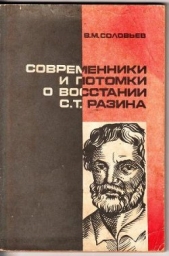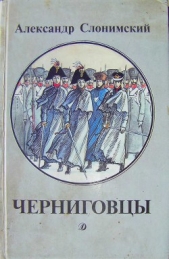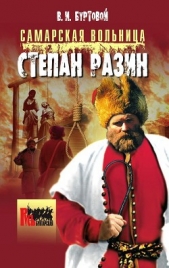Иностранные известия о восстании Степана Разина

Иностранные известия о восстании Степана Разина читать книгу онлайн
Издание завершает публикацию всех важнейших зарубежных материалов XVII в. о восстании С. Разина, остававшихся еще не опубликованными. (Первый выпуск — «Записки иностранцев о восстании С. Разина». Л., «Наука», 1968). В сборник вошли: брошюра о восстании, изданная в Лондоне в начале 1671 г., диссертация о Разине, защищенная и изданная в Германии в 1674 г., отклики на восстание западноевропейской прессы 1670–1671 гг. и записки Кемпфера о персидском походе Разина.
Материалы комментированы и сопровождены источниковедческими статьями.
Издание рассчитано на широкий круг читателей: учителей, студентов аспирантов, научных работников.
Внимание! Книга может содержать контент только для совершеннолетних. Для несовершеннолетних чтение данного контента СТРОГО ЗАПРЕЩЕНО! Если в книге присутствует наличие пропаганды ЛГБТ и другого, запрещенного контента - просьба написать на почту [email protected] для удаления материала
While they behaved themselves after this manner in the Silk-country, it fared but ill with their Embassadours at Court; for they were dragged out from a Publick Audience which the King gave in the Talaar Ali Kapi, with 3 people who were joyned to them and came along with them, in all 6 persons, their Necks and Hands were fastened into the wooden Mik [270] and they were led into the [271] one after another, and 2 of them flung alive to the Dogs to be torn to Pieces; the others were pardoned, but forced to be circumcised and (л. 3) turn Mahometans. The Persians imagined, that the Czar of Moscovy had sett them to work to committ this Ravage in the Silk Lands, in revenge for the affront, which Abas II had done to his Embassador in the year 1665, but we could not believe that so generous a Prince as the Czar was, would have done any such thing underhand and with so small a force, if he would have taken notice of the affront. But the Czar, being very powerfull, always observed a strict friendship with King Abas II, there having always subsisted a good harmony between the two Kingdomes, and the Czar was sufficiently sensible of the extravagant proceedings of his people, which [272] at this juncture he with justice laid [273] at their own door. It seems on the other hand, that the King of Persia in the Letter he sent on this occasion, made some complaint, and pointed at a distance at some faults, but this was certain that the Messenger being anxions [274] what answer the Czar [275] might give, died upon the road in Persia, fearing he should incurr the Czar's displeasure, [276] and it was likewise certain, that he took notice of his Embassadour's uneasiness in his Letters [277] in answer to the [278] Epistle of Abas II, [279] when the Cossaks were still posted in the Silk Country; but he sent him at the same time an English Colonel named Mr. Palmer, who had been long in his service: for he had desired him to send him an European officer [280] well experienced in the. [281] Military Discipline and the method of managing war. But in the meantime Abas died, and Sjah Sefi II succeeded, who was not apprized of the value of this man, and as well as his Prime Minister took no notice of him. And what made him more neglected (л. З об.), was, that he was an old man with one foot in the grave, was a person of no presence, and was not talking [282] with the Persians, being capricious selfconceited and proud, nor able to conform himself to their humours. At first he lived pretty well upon his Salary, but that was soon diminished, that he could not maintain himself with his Wife and Children, whom he had brought along with him, at last to get rid of him they denied him all manner of support, unless he would renounce his Religion. Last of all when he was quite reduced to Poverty, the Europeans bore his charges to Gam-ron, from whence the English conveyed him to Bombay. This Embassy was not committed to an unskillfull Russian, but to an Englishman, one ffebdon, a perfect Master of the Russian tongue, in which Langu age his Instructions were drawn up. His Brother was likewise sent as Ambassadour from the Great Duke to the King of England. [283] The subject of the Embassy into Persia, was to make a Convention relating to the Silk Trade, and Hebdon was to have remained in Gilaan or Mezanderaan as Resident to manage the Business. But he arrived at Ispahan at the point of death, and died the next day, so this affair rested here without any farther Step being taken in it for no body of his Retinue had any instruction or orders to proceed with, and from that time nothing [284] has beed done [285] concerning that Commerce. The Proceedings of the Cossacks did also evidently demonstrate, that they did not act by the Czar's directions, for they did not spare the Country of even Great Duke himself (л. 4). These Robbers being thus posted in the Peninsula of Mezenderaan, the Persians fitted out some small Vessels [286] armed with a few pieces of small Cannon and some men, to dislodge the Cossacks by attacking them from the Seaside. But the Persians were unacquainted with the Coast and Engagements at Sea, whereas the Enemy were very ready and expert. The Persians could not manage the ir Ships, nor make use of their men advantagiously against the Enemy, so the Cossacks putt them into confusion as soon as ever they were gott out to Sea, so that the greater part of them fell into the Enemy's hands, who likewise sank most of their Ships, having first taken the Guns out of them. And thus there were but few of the people who escaped being Killed or drowned. The Court then talked of fitting out another fleet against them, and to man it with stout [287] fishermen from Bahrein and other Seafaring people, because the former defeat was thought owing to the natives of that Country. But the Robbers, not seeing that they were likely to make any farther advantages upon this Coast, did not wait the event of this resolution, but quitted the Peninsula Mijannkaal on their own accord to the Year 1669. We heard, that after this they made themselves masters of Astracan by surprize, destroying all before them, and putting many of the people to the sword, till at last a valiant general coming retook the Town, which they did not defend long, but betaking themselves to their Ships, fell down again into the Caspian Sea (л. 4 об.), and sailed to Jayk, where they put themselves in a posture of defence, thinking they should be able to hold out. But the General, as soon as he settled affairs at Astracan, followed after them with all possible expedition, and blockt them so upon all sides, that they had no way to get out, but all fell into his hands, among whom was their Bojaar or Chief taken Prisoner, who was afterwards sent in chains to Moscow, where very severe punishments were inflicted on him; as is sufficiently Known in Europe by the accounts already given of this affair, and therefore I shall say no more concerning it in this place.
Stenko Radeiri's Expedition into Persia, related by word of mouth by a Cossack who assisted at it and with 30 others was taken Prisoner nine Years ago upon the Osto Duwanni (behind which as was said, lies another, Sziloi), near Baadkui, when they went robbing on their own account
After Stenko had Kept his Winter quarters in Yeikstadt [288] which place he had taken by a Stratagem, desiring to go in only with 5 persons, but Bogumolic breaking in with the Arriergard did render himself Master of it, he went to Sea with 1200 men in 29 or 30 Struses. Upon each Buse was but one Cannon, but when they came back from Astarabad, they had 2 or 3. It is to be wondered at, that they could pass the Sea with Struses; to perform this, they had defended their Vessels by fastening round about the Gunnel Rolls stuffed with Grass or Straw, which made them lighter and Kept off the (л. 5) Waves. They had built these Struses at Gurgi upon the Caspian Sea, and doubtless carried the materials with them down the Volga, for they did not take that course which Chardin describes, but the usual Robbers way through Kamuczinka Rekka, by Zariza and Astracan, where by the way they robbed all in a hostile manner. These Struses were one man high, one Russian Ell deep under Water, 8 fathoms long, and 1 fathom broad.
























